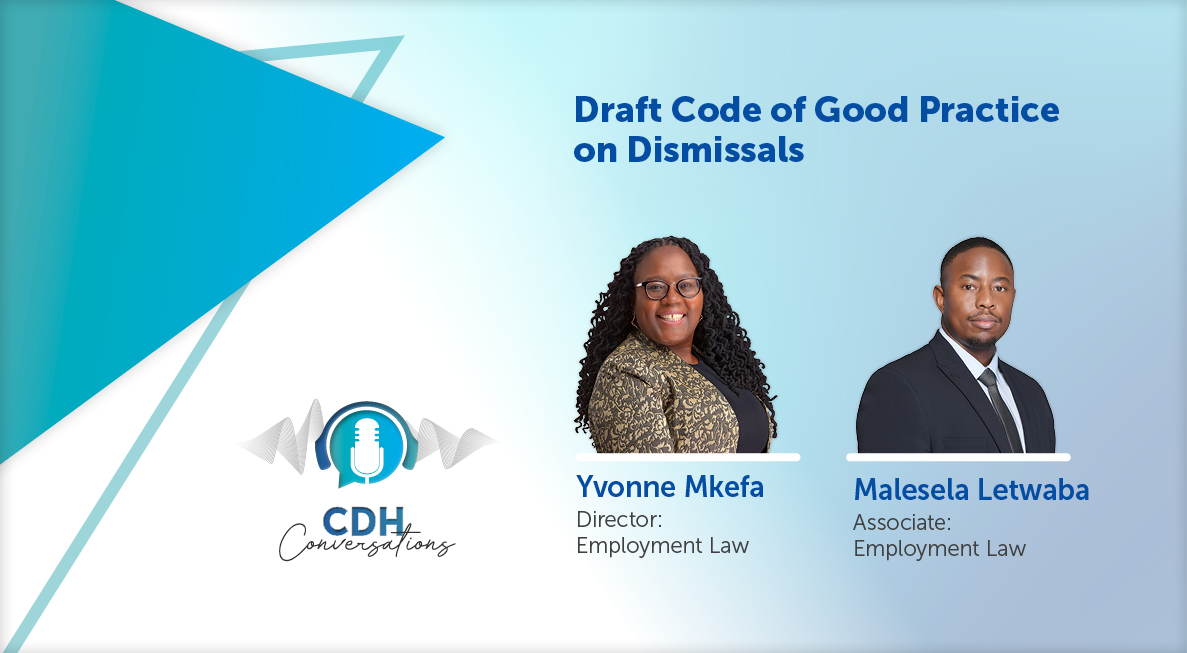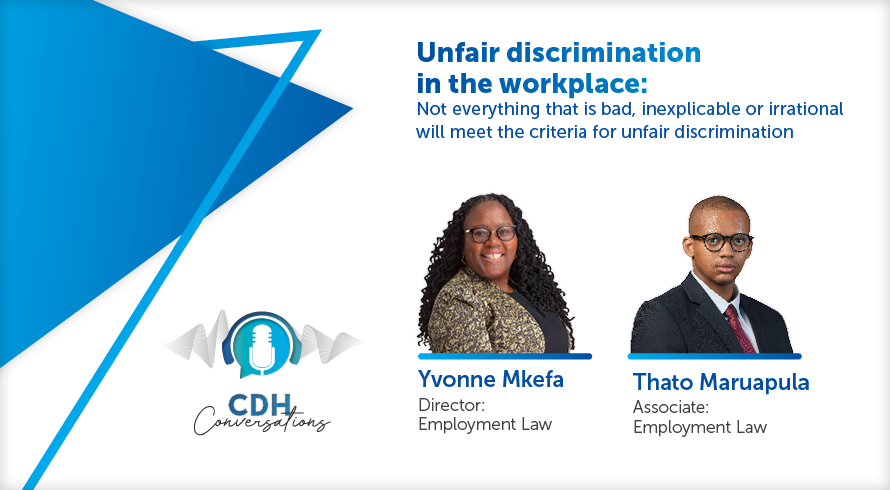Important guidance from the constitutional court on validity and fairness in large-scale retrenchments
One of these is the decision of the Constitutional Court handed down on 22 January 2016 in the case of Steenkamp and Others v Edcon Ltd (2016) [ZACC1]. The case deals with a so-called large scale retrenchment. A large-scale retrenchment is regulated in terms of s189A of the Labour Relations Act, No 66 of 1995 (LRA). Section 189A prescribes a minimum consultation period must elapse before notice of termination of employment may be given. If a CCMA facilitator is appointed to assist the parties in the consultation process, the minimum period is 60 days from the date on which the employer issued the employees with notice of possible retrenchment. If a facilitator is not appointed, the duration of the minimum consultation period is somewhat uncertain. The LRA requires that in such an event either party must refer a dispute to the CCMA for conciliation during the consultation process. The crucial legal issue that was addressed in the Edcon case is the impact if neither the employer nor the trade union refers a dispute to the CCMA and the employer issues the employees with notice of termination of employment prematurely ie before the expiration of the minimum consultation period.
In the Edcon case, the trade union challenged the dismissals as being invalid, as a result of being in breach of the provisions of s189A of the LRA. The employer argued that the dismissals were not invalid, but may have been unfair. The distinction between validity and fairness is important, particularly given the consequences. If a dismissal is found to be invalid, the employees may be reinstated with back-pay. If a dismissal is found to be unfair and the unfairness is limited to procedural unfairness, the employees are not entitled to reinstatement, but only compensation.
In the majority judgment the Constitutional Court found that the failure to comply with s189A(8) may impact on the procedural fairness of the dismissals, but not their validity. The court highlighted that the LRA does not provide for invalid dismissals and that the employees should have sought relief in terms of the LRA and not the common law. The relief they could have sought included embarking on strike action, referring a dispute to the Labour Court seeking, for example, an order compelling the employer to comply with a fair procedure, interdicting the employer from dismissing employees prior to complying with a fair procedure, or directing the employer to reinstate employees until it has complied with a fair procedure.
This case gives critical guidance to employers when embarking on a large-scale retrenchment, in particular some of the steps which an employer must adhere to in order to ensure that the retrenchment is procedurally fair.
The information and material published on this website is provided for general purposes only and does not constitute legal advice. We make every effort to ensure that the content is updated regularly and to offer the most current and accurate information. Please consult one of our lawyers on any specific legal problem or matter. We accept no responsibility for any loss or damage, whether direct or consequential, which may arise from reliance on the information contained in these pages. Please refer to our full terms and conditions. Copyright © 2026 Cliffe Dekker Hofmeyr. All rights reserved. For permission to reproduce an article or publication, please contact us cliffedekkerhofmeyr@cdhlegal.com.
Subscribe
We support our clients’ strategic and operational needs by offering innovative, integrated and high quality thought leadership. To stay up to date on the latest legal developments that may potentially impact your business, subscribe to our alerts, seminar and webinar invitations.
Subscribe




